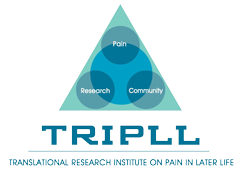Health care professionals who specialize in treating chronic pain have moved beyond what doctors call a unidimensional evaluation to a multidimensional one. It makes total sense, says Cary Reid, MD, PhD, director of the Translational Research Institute on Pain in Later Life at Weill Cornell Medical Center, New York. “Pain is something that has many dimensions,” he says. “One thing important is the severity level.” So using what the doctors call the numeric rating scale or NRS, the zero to 10 question, is fine as a start.
After that, many more questions should follow, Dr. Reid says. “What we want to know is, what impact is it having on important aspects of your life?” Dr. Reid asks his patients affected by pain:
- Is it affecting your sleep?
- Is it curtailing your social life?
- Is it impacting your work?
- Is it a threat to your identity?
That last question may sound rather dramatic, but if pain has turned you into someone else—you don’t socialize or exercise or work as you used to–that’s a potential threat to your identity.
People who manage their pain well, with whatever treatment plan works for them, ”continue to have meaning and purpose in life,” Dr. Reid says. However, for others, who don’t, the pain ”is so overwhelming it doesn’t allow them to remember who they are as people.”
Excerpted from an article by Kathleen Doheny on the Senior Planet website. Click here to view the entire article.
